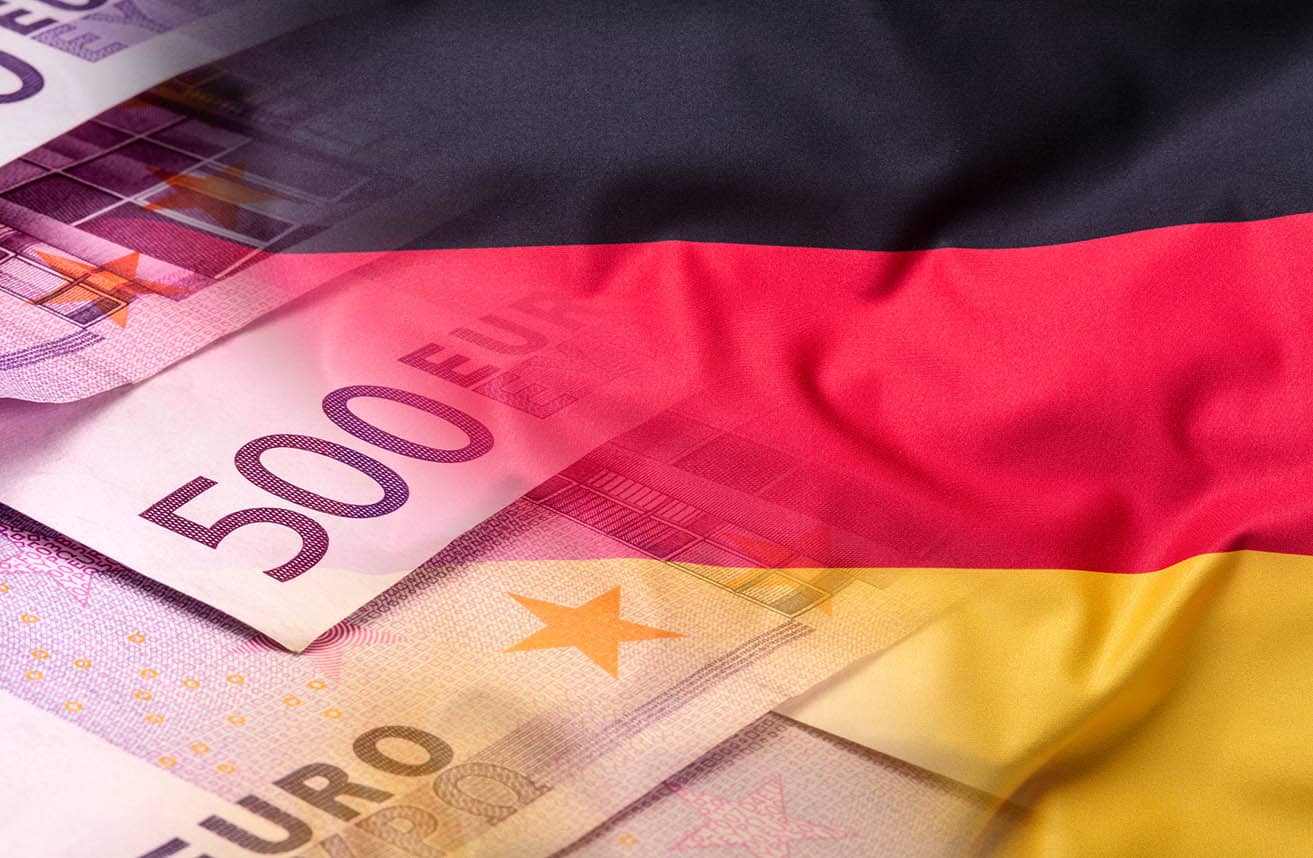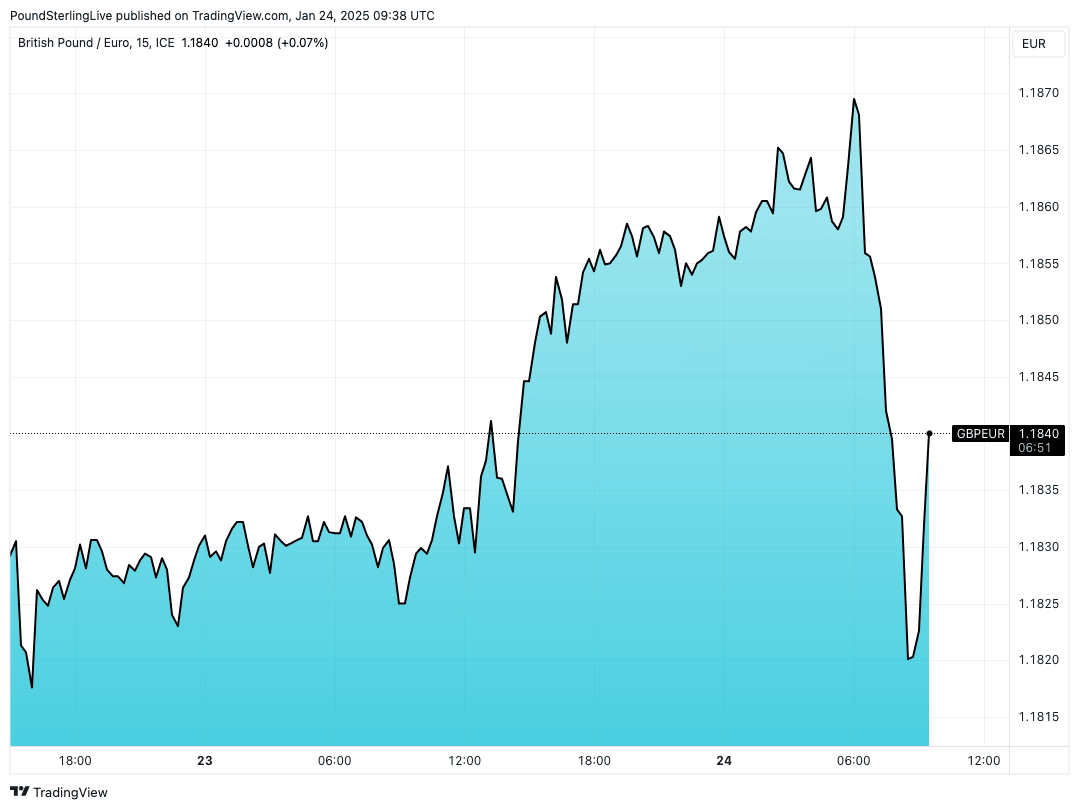Euro Boosted by German PMI Relief
- Written by: Gary Howes

Image © Adobe Images
Euro exchange rates were boosted following the release of new data showing the German economy is set to recover.
Pound Sterling fell against the Euro in the minutes following news that the German economy saw improved activity in January as the Composite PMI for January rose to 50.1. The unexpected rise reported by the survey defied expectations for another sub-50 reading of 48.2 and sent the Pound to Euro exchange rate (GBPEUR) to 1.1820 (-0.30% on the day).
"Germany might dig itself out of the recessionary phase of the past two years," says Cyrus de la Rubia, Chief Economist at Hamburg Commercial Bank. "Activity picked up pace... services companies stopped trimming staff & actually increased employment for the first time since June".
Compare Currency Exchange Rates
Find out how much you could save on your international transfer
Estimated saving compared to high street banks:
£2,500.00
Free • No obligation • Takes 2 minutes
A Composite PMI reading above 50 is consistent with expansion, marking a welcome return to growth for Europe's largest economy.
The improvement was driven by the services sector, where a solid 52.5 outturn breezed past expectations for 51. But manufacturing, the engine of Germany, looks to have reached its nadir and could be set to stabilise as the Manufacturing PMI of 44 defied expectations for a decline to 42.
The Euro has been depressed by months of disappointing Eurozone economic data, largely centred on Germany. If a peak pessimism moment has been passed then the prospect of a recovery builds.
Germany might be turning a corner just as the UK takes a turn for the worse. British data since mid-2024 has disappointed and is consistent with an economy entering a period of stagnation, with a new consumer confidence survey out Friday suggesting further weakness ahead.
Such an economic divergence between the Eurozone and the UK will prove a powerful downforce on GBP/EUR.
🎯 GBP/EUR year-ahead forecast: Consensus targets from our survey of over 30 investment bank projections. 📩 Request your copy.
Also helping the Euro's cause on Friday was better than forecast French PMI survey numbers. Here, the Composite remains in contraction at 48.3, but this is a solid beat on the more downbeat expectation for 47.7.
France's Manufacturing also improved, rising from 41.9 in December to 45.3 in January. Services disappointed somewhat, falling to 48.9 from 49.3.
Above: GBP/EUR fell after the release of German PMI data.
The picture for the wider Eurozone is also improving, with the all-Eurozone Composite PMI shifting up a gear to 50.2 from 49.6, beating the consensus expectation for 49.7.
S&P Global, who compile the PMI reports, said signs of improvement in business activity meant that staffing levels neared stabilisation at the start of the year.
It also reported input prices rose sharply, which hints at rising inflationary pressures.
Taken together, the data will have some implications for next week's European Central Bank (ECB) policy meeting. The ECB will cut rates by 25 basis points but the guidance could turn more balanced.
Signs of improvement in the economy and further signs of inflation's persistence will allow the ECB to maintain a data-led approach to considering further rate cuts.
"Price pressures persist, as firms reported that input prices have accelerated further, mostly owing to wage increases in the services sector. Higher costs were largely passed on to consumers, suggesting that inflation may continue to display some stickiness and pose a challenge for the ECB," says Leo Barincou, Senior Economist at Oxford Economics.
Given some signs of improvement and rising price pressures, the ECB won't want to shift its current settings by pre-committing to further rate cuts.
This would represent a 'hawkish' outcome from a foreign exchange markets perspective, as any slowing in the pace at which the central bank cuts rates will underpin European bond yields.
In turn, this would assist the Euro in advancing against the Dollar and Pound.





